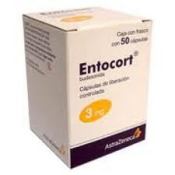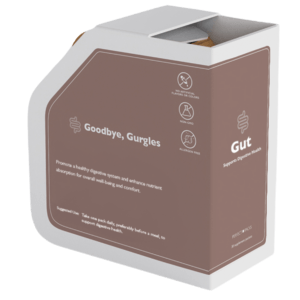
Symptoms of celiac disease can be different for everyone. Common digestive issues include constipation, stomach pain, and bloating. It can also cause tiredness, itchy skin rashes, blisters, and feelings of sadness or depression.
If celiac disease isn’t treated, it can cause problems like weak bones, anemia (not enough healthy red blood cells), and poor nutrition. The main goal of treatment is to protect the small intestine from further damage.
Lifestyle Management
People with celiac disease are always advised to stay away from foods containing gluten. Following a strict gluten-free diet can help reduce symptoms in just a few days or weeks and improve the health of the small intestine. Common sources of gluten that can cause digestive problems include:
- Baked items such as bread, cookies, and crackers
- Whole grain foods
- Beer, including ales, lagers, and some flavored drinks with malt
- Certain food additives, colorings, starches, and thickeners
- Vitamin and mineral supplements
- Some hair and skin products can also contain gluten. For people who already have symptoms when eating gluten, using hair products with gluten might increase the chance of those symptoms.
However, even with a gluten-free diet, avoiding all contact with gluten can still be a challenge. Here are some extra ways to avoid gluten:
- Read labels on packaged foods to make sure they’re gluten-free.
- Prepare gluten-free meals separately from other foods.
- Let restaurant staff know about your gluten allergy when you order.
Studies show that many people with celiac disease accidentally eat gluten even while following a gluten-free diet. This can happen if gluten-free food comes into contact with substances containing gluten during cooking or handling, which may cause symptoms or a flare-up in those with celiac disease.
Getting enough fiber, vitamins, and minerals on a gluten-free diet can be hard. People should talk to their doctor, dietitian, or nutritionist about creating a meal plan that includes all the nutrients they need.
Medications
The main way to manage symptoms of celiac disease is by following a gluten-free diet. However, avoiding gluten can be challenging, especially with common foods in a Western diet. Some people with celiac disease continue to have symptoms even after going gluten-free. In this case, certain other treatments may be prescribed.
Prescription Medications

People with celiac disease might develop an itchy skin rash or blisters called dermatitis herpetiformis (DH) when exposed to gluten. A dermatologist or regular doctor may recommend a cream or medication like prednisone to help lower the inflammation.
Over-the-counter supplements
For people with celiac disease, it can be hard to get enough nutrients because their body struggles to absorb them properly. Some of the nutrients they may be low on include iron, calcium, zinc, vitamin D, magnesium, niacin, and folate. It’s a good idea to check with a doctor to determine if taking gluten-free vitamins or supplements is needed.
Probiotics and gut microbiome support

Enzyme therapy
Glutenase enzymes, like Aspergillus niger-derived prolyl endoprotease (AN-PEP), are proteins found in some supplements that help break down gluten in food. They can be helpful for people who have trouble digesting gluten, making it easier for their bodies to handle meals that might have small traces of it. These enzymes can help process tiny amounts of gluten eaten by accident and may reduce symptoms if someone is unexpectedly exposed.
Enzyme therapy can help people who are worried about accidentally eating gluten, especially in social situations or when dining out. However, it is not a replacement for a gluten-free diet. These supplements are still being studied and should only be used along with a strict gluten-free diet, not as a substitute.
Promising new treatments
New research from Tampere University in Finland shows that a new drug called ZED1227 may help people with celiac disease. It’s designed to work alongside a gluten-free diet to make managing the condition easier.
In people with celiac disease, gluten triggers inflammation and damages the small intestine. This happens because gluten interacts with certain proteins called HLA (human leukocyte antigens) in the body. An enzyme in the small intestine, known as TG2 (transglutaminase 2), changes gluten through a process called deamidation, making it more harmful. This process causes the immune system to attack the intestine, leading to inflammation and damage. ZED1227 might help by blocking TG2 from changing gluten, potentially preventing the harm and reducing inflammation.
Experimental therapies
Scientists are studying a drug called larazotide acetate to treat “leaky gut,” a condition where the walls of the intestines become too loose, letting harmful substances pass through. This drug works by tightening the spaces between cells in the gut lining, which could prevent gluten from leaking into the bloodstream and triggering an immune reaction. It’s being tested as a potential treatment for conditions like celiac disease, where gluten causes inflammation and damages the intestines.
Why doctors may choose one treatment over another
People with celiac disease may need different treatments based on the type and how advanced it is. For those just diagnosed, the focus is on eating better and following a strict gluten-free diet. Stronger treatments like immune system drugs or experimental options might be needed if their condition doesn’t improve. If problems like anemia or weak bones happen, doctors might recommend extra vitamins or minerals. Probiotics can also help with ongoing stomach problems.
Doctors might suggest enzyme therapies or probiotics for those who struggle to stick to a gluten-free diet.
Living with celiac disease
A celiac disease diagnosis can be tough on mental health. For extra support, people can talk to their doctor about counseling options. There are also online support groups through organizations like the National Celiac Association and Beyond Celiac, where individuals can share their experiences with others.
Conclusion
The main treatment for celiac disease is sticking to a gluten-free diet, but managing the condition often takes more than that. Supplements can help fix vitamin and nutrient deficiencies, and other treatments can reduce symptoms or protect against accidentally eating gluten. New medications being developed could be helpful in the future, especially for people who don’t respond to the diet or have trouble following it. In the end, the best treatment plan depends on the person’s needs, symptoms, and how well they can stick to the diet, so a personalized approach is key to managing celiac disease.
FAQs
When will I see results from a gluten-free diet?
Switching to a gluten-free diet can help improve symptoms for some people in just a few days or weeks. However, the intestines take much longer to heal completely, sometimes months or even years.
Does celiac ever heal?
Removing gluten from your diet permanently is the only way to manage this condition. Avoiding gluten for life is essential. For most people, eliminating gluten will resolve symptoms and allow the intestine to repair itself.
Is rice gluten-free?
All-natural rice is gluten-free, making it a staple grain for individuals with celiac disease. Be careful of rice-based treats and cereals if they contain other ingredients that may contain gluten.
Can stress cause celiac disease?
In some cases, celiac disease may be triggered by events such as surgery, pregnancy, childbirth, viral infections, or intense emotional stress.
















